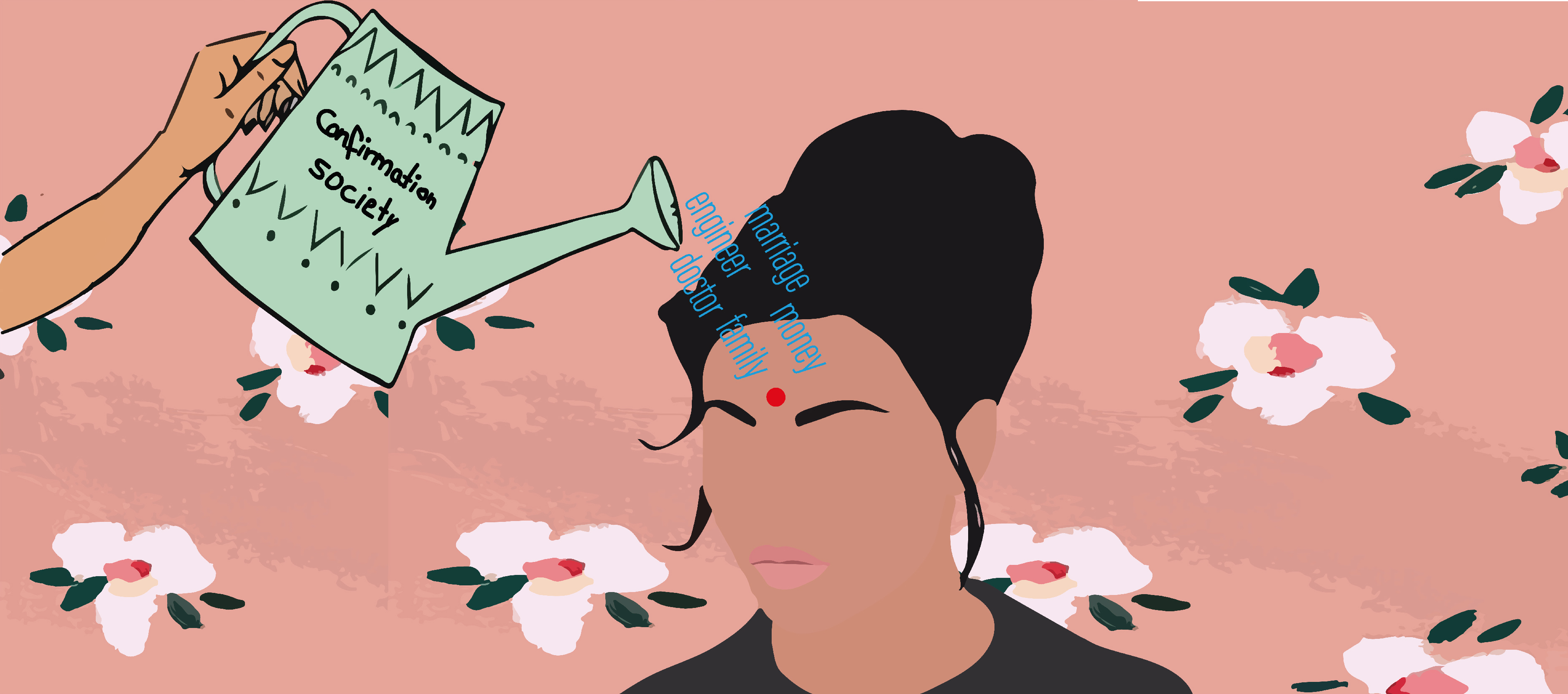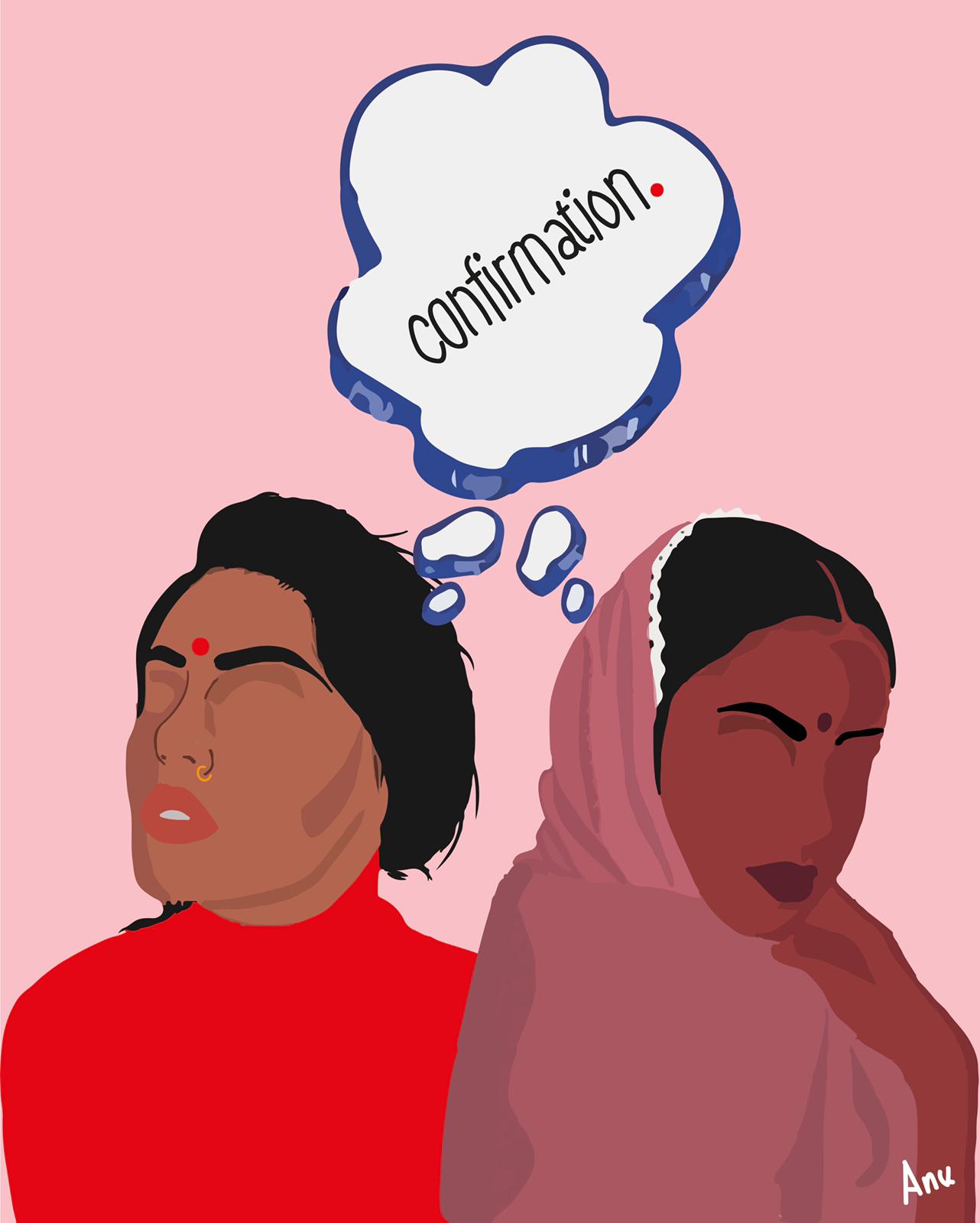
“But what would others say?”
A sentence almost all of us, or at least those from the Asian community, can relate to. If you are one of those individuals who are overprotective or caring, then this article is especially written for you. What you have to know is that the “first them, then me” mentality is already programmed from our childhood.
Caring for others and striving for external validation has different motivational aspects. WHY we care for someone else says always something about ourselves. Especially as little girls, we are taught to take into consideration what others might think and feel. To take care of our siblings, parents, grandparents, our marks in school and the list goes on. Everytime we fulfill this responsibility, we get validation from the outside.
Sentences like 'you should be happy to have a daughter like her' validate our parents by affirming they are doing everything right. So, society starts to condition our behaviour.
The "good" versus the "problematic" child
We get taught that external validation matters a lot and that it plays a big role in building our self confidence and self-esteem. External validation is seen as a big source – sometimes even the only source which defines ourselves. When some young people don’t do what society expects from them, they don’t get the positive supportive validation from outside. They are often seen as a “problematic child” which their peers and adults try to avoid.
"So, they are put in drawer, where is very difficult to escape from."
Everyone is on the lookout for proof that this young person is displaying behavioural problems. Using drugs, having fights or joining street gangs are extreme examples. Meanwhile, the children who are always good in school, do what their parents say and are a big help for them and the society, are the standard against which “problematic children” must compete with. So, the gap between both types of kids grows over time.
Sometimes, we even can find both types within one family, where someone is the “good” child and the other one the “bad.”
"It is a competition which has its fundamentals already established in childhood and gets bigger and bigger as soon as we grown up."
How external validation accompanies us until adulthood
As adults this behavioural pattern defines how we see ourselves and our environment. The pressure to always be the best is a competition nobody can ever win. You could do everything possible and still not receive the expected validation.
“But what did I do wrong? I was caring, loving and giving – there was nothing what I could have done better.”
On the other side people are frustrated because their behaviour is measured up to a standard they can never reach.
“Everything I am doing is wrong.”
A vicious cycle of lowering an individual's self-esteem and self-confidence. The result is that some people even create a capsule around themselves to protect themelves from others – to avoid being hurt by words and rejection. In most cases they get rejected because they are different than society wishes them to be.
The drawback of external validation: Fearing rejection
The truth is, even the strongest human being is vulnerable and fears rejection. Rejection is the complex result when someone doesn't like us for what we are standing for, what we express or simply doesn't like us for being who we are. I remember when I was scrolling through the feedback to my last few articles, I discovered that someone made fun of one of them on a bigger platform. Sadness, disappointment and self-criticism crossed my mind. I tried to understand why someone reacted that way - and that is what we do in most cases when we face rejection- we overanalyze the situation and ask ourselves:
"Could I have done something differently to prevent this situation?" The answer is usually a NO.
We must make ourselves clear, that we are all complex individuals. There will be people who like what we are saying and there will be people who don't agree with us. The mistake here is that we overanalyze the situation and blame ourselves for what happened.
We learned in our childhood "Care about what others say, what others might think and talk about you or you will face negativity."

"Why do I face rejection even I am trying to please others?"
No one tells us that we will face negativity even if we follow the given path. So, we are hurt when we earn criticism - criticism that sometimes has nothing to do with us but more to do with the person delivering it.
That's why we have to educate our children to be confident and to stand up for what they are regardless of what others might think! The "others" or society at large won't only judge you by what you are doing, but also through the lens of themselves - their thinking patterns, jealousy, standards etc. The question behind this is:
“When are we enough? When external validation is not received, who are we?"
Another example of external validation: Social Media
In some ways, it is ironic to write about external validation on social media. But an article about external validation certainly needs to mention the dark sides of social media. Likes, shares and followers build up a lot of egos. I won’t deny that getting feedback via social media pushes my self-esteem. Every one of us wants to be seen, given attention or how we call it in psychology: external validation.
"Did you know that the dopamine shots which are crushing through our brains as soon as we get a new double tap on Instagram are almost the same as during the usage of heroin? So, we are nothing more than drug addicts. The slaves of external approval."
Have you been in a situation where you deleted a picture on social media because it didn’t get the number of likes you expected? In this situation maybe you thought: “What’s wrong with this picture? What’s wrong with me?” We sense that something outside of us is different than we thought and justify the absence of external validation with a mistake within ourselves. “So, it's better I delete this picture before someone notices that I uploaded a new picture. No one likes it.”
The results: anxiety, depressions and self-destruction
Maybe you even heard of those awesome women, the unseen queens, who are picking an immature man as a life partner? What characterizes these women is, that they love to care for someone else and they unconsciously look for a man who needs 'fixing'. So, they get the approval from the outside what a great job they did with their love and care. The man by her side as a “project” – an incomplete project given in the hands of this overgiving woman. Don't get me wrong - there are also cases where a man is overgiving.
"The point I want to make clear is that overgiving can end up in a self-destructive behaviourial pattern."
What everybody forgets is that no love and no care can heal a person from their destructive behaviour if they don’t want it themselves. So, the over-giver starts to give and give and give without seeing any positive results. Instead he or she might even be mistreated by their partner. This is an example where seeking external validation fails, even damages the mental health of a person.
Another great example is our shopping behaviour. When we buy something from apple or other powerful brands, we want to be seen. There is a message behind what we show and what we buy.
"Look who I am, what I achieved and what I made out of my life."
The solution is social recovery
When we have a closer look at our society, typical every-day questions are:
"Who has the biggest house?
Are my children the most successfull?
Who has more than one car?
The biggest wedding?
Who has a high job-position?"
etc.
Sometimes I am a victim of this behaviourial pattern as well. Seeking external validation and the everlasting competition taught to children is continued into our adulthood. So, we never escape from this - until we decide for ourselves to do so.
"Are all the sleepless nights, the hours of not calming down and the depressive days worth the external validation? A question only you can answer for yourself."
Ask yourself if you are an over-giving person because you learned that you had to be that way. Validation is needed and everyone of us is looking for validation and attention in some way, but it shouldn’t be the only source which defines who you are and your happiness.
"Only if we are ready to improve individually, can we improve as a society. And most importanly: Don't define your own value by labels like "good" or "bad."
Illustrations in this article are by Anushan R. Thank you for creating this amazing work! Check out his page on instagram for more.
Want to read more articles about personal development, growing up between two cultures and mental health? Visit https://thecultureofgrowth.com/ and follow my blog on instagram and facebook.
You can also follow my profile on TamilCulture.com to get notified of my latest posts in real-time!

























